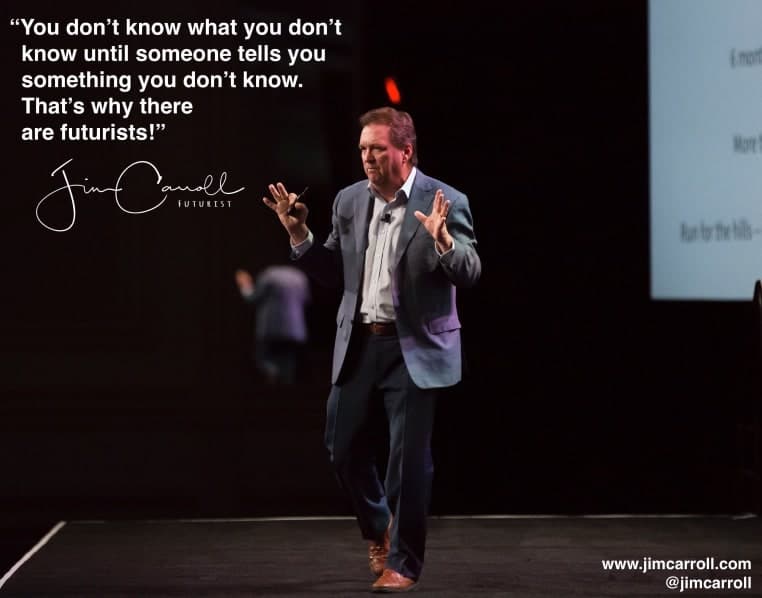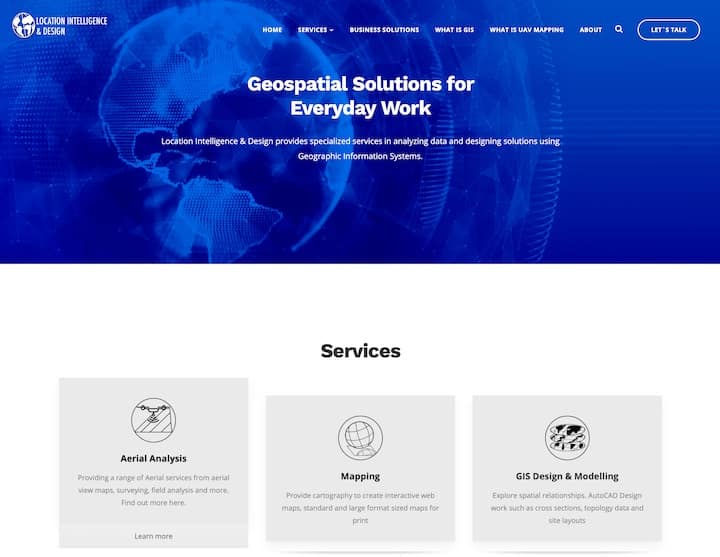You should know what you don’t know!
Because if you don’t, you won’t know!

With that idea in mind, here’s a line of questions you might to try to challenge yourself when it comes to your ability to deal with the future and your own knowledge.
- Why don’t you know what you should know?
- Why should you know what you don’t know?
- Do you actually know what you should know?
- If you knew what you should know, would you know?
- What if you know what you should know – would you know enough?
Study the list carefully. It’s a good framework for the thinking that you should do with any sort of disruptive trend!
Let me give you an example of how this works. My oldest son is starting up his own aerial analysis drone mapping location intelligence company. You’ll find it here:
I’m excited to be working with him as he builds out opportunities in this fast emerging field, and to do that properly, I need to understand what it is he is really doing, what he offers to his clients, and the benefits that they get.
And so I am fully prepared as I immerse myself in this new venture that there is a lot that I don’t know! So here goes! This is how these questions just worked for me moments ago as we walked through some aspects of his efforts.
1. Why don’t you know what you should know?
I know a lot about what is going on in the drone space, but not enough. I haven’t done my full research – and need to do more. That’s an easy question to answer.
2. Why should you know what you don’t know?
I want to be able to help him clearly identify the nature of the service offering, how he can differentiate himself in the marketplace, and why his level of services based upon an advanced digital mapping and physical geography degree are far different from other potential competitors. So if I immerse himself in what he does, the process he follows, the skills he has – I can use my own unique skills in branding and marketing to help him out.
3. Do you actually know what you should know?
I think so. I’ve got a pretty good idea of the knowledge gaps I need to fill to help him out – I need to learn more about the API process used in DJI’s drone technology, and how this leads to different flight planning software options. I need to know how he can set up a mapping plan with different software, how he interprets the data, the different types of value that he can bring to those datasets. Since I’m setting him up with a Linux server using OpenDroneMap (I’m the tech support department), I need to know more about the process of processing the data in that environment compared to commercial alternatives. There’s actually a lengthy list of things that I think I need to know!
4. If you knew what you should know, would you know?
In this case, yes. I’ve been tracking the drone industry for quite some time, and know there are massive transformations occurring in a variety of industries and professions . But this question always gets me going – I might already know it, but don’t really know!
5. What if you know what you should know – would you know enough?
Never …. and so this question is always a thruway Knowledge is doubling in every career and profession every few years; every trend is exponentiating; disruption is accelerating. As a result, you can never know enough!
That process might not make sense, but it works for me.
Give it a try!





GET IN TOUCH
Jim's Facebook page
You'll find Jim's latest videos on Youtube
Mastodon. What's on Jim's mind? Check his feed!
LinkedIn - reach out to Jim for a professional connection!
Flickr! Get inspired! A massive archive of all of Jim's daily inspirational quotes!
Instagram - the home for Jim's motivational mind!